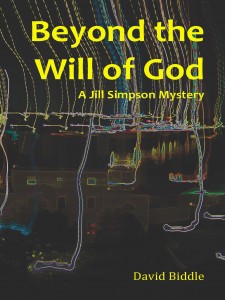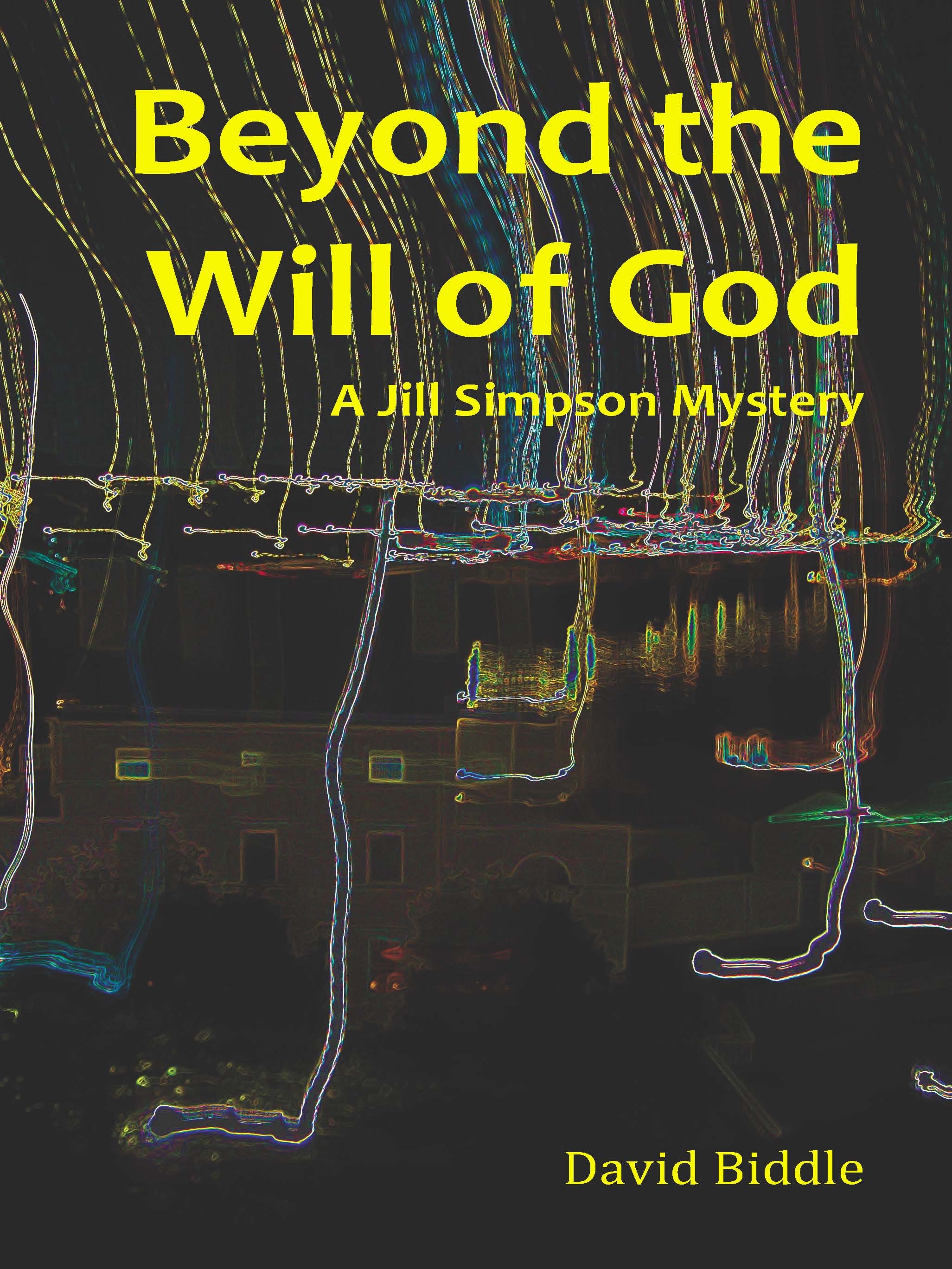 Today we have a sneak peek from David Biddle’s mystery novel, Beyond the Will of God:
Today we have a sneak peek from David Biddle’s mystery novel, Beyond the Will of God:
Police detective Jill Simpson investigates the murder of an Amish teenager. Tabloid reporter Frank Harris investigates mysterious Elvis sightings in Missouri farm country. As these two work first separately and then as a team, the plot progresses to include many of the legendary conspiracies people pondered during the ‘60s and ‘70s. Threaded through the story is the question of the power of music, especially loud guitar music, and whether we have missed out on identifying secret dimensions of human perception here in the 21st century. Beyond the Will of God is an off-the-grid mystery.
Beyond the Will of God is available through Amazon.com
And now, from Beyond the Will of God…
Harris turns the radio off, glad that his boss, Aaron Treestat, has pulled strings and booked him a room in a motor lodge. The tone in the DJ’s voice is interesting, he thinks. No question, there is a strong sense of mockery already at play here. How can anyone in media believe something so cliché and fantastic? And what does it say about the country when Elvis sightings have taken on the same significance as miraculous healing statues of the Virgin Mary or paintings of Jesus that bleed tears?
Still, if the announcer is playing to listeners with such a tone, it’s likely that those in other parts of the country – readers of his own publication – will pay attention long enough for him to do his work. Harris’s job as a tabloid journalist is to use unknowns and half-truths as hooks. In one way it is the lowest form of writing imaginable. Readers don’t care how he reports things, they just want to be titillated a bit – a nice vacation from their mundane, waiting-for-something-big lives. But in another way, Harris feels that his writing is almost poetry because he takes the fantastic and bizarre, the virtually impossible, and makes it real, makes it, in fact, simple and obvious. It is Harris’s job to make the improbable not only believable but downright commonplace.
Half a mile later, he notes that the shadow of trees on the right side of the road has given way to a gaping blackness. He knows without doubt that he is driving close to the water. He stops, turns off the lights, and gets out.
Three things make the darkness seem alive: the electronic pulse of insects everywhere; the deep sound of water rolling by with unlimited power; and, finally, the heavy scent of that water in the stale, windless air – the smell of centuries and decay, the smell of life carried forth forever by gravity and natural purpose, the smell of traveling sediment, catfish, floating human debris, pesticide runoff, and diesel slicks. In the darkness it all comes to him as a faint taste in the back of the throat, the flavor of emptiness and heat and the river – sweet and wholesome, like bread, but tangy and with a slight aftertaste of sulfur and ammonia.
His vision hovers above the moving water, seeking its dull, inevitable flow. He hears the scree and click of cicadas, grasshoppers, crickets, and locusts. Lighting a cigarette and thinking about the bottle of scotch in his luggage, he feels the first drops of sweat trickle down his back. He wonders if he still has what it takes to concoct a story like this. He is out of his element, wandering in the night gloom of river bottom country, feeling that the Missouri River is a cosmic animal moving into worlds he can only guess at. In the darkness, especially, the river is everything he’s imagined it would be.
_____________________________________



Read it and loved it. Fun read. Great descriptions, and engaging suspense as it all comes together.